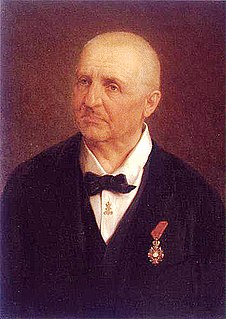A Quote by John Calvin
Let this be our rule for goodwill and helpfulness, that whenever we are able to assist others we should behave as stewards who must someday give an account of ourselves.
Related Quotes
How do we define, how do we describe, how do we explain and/or understand ourselves? What sort of creatures do we take ourselves to be? What are we? Who are we? Why are we? How do we come to be what or who we are or take ourselves to be? How do we give an account of ourselves? How do we account for ourselves, our actions, interactions, transactions (praxis), our biologic processes? Our specific human existence?
Pity is a sense of our own misfortunes in those of another man; it is a sort of foresight of the disasters which may befall ourselves. We assist others,, in order that they may assist us on like occasions; so that the services we offer to the unfortunate are in reality so many anticipated kindnesses to ourselves.
When we become more fully aware that our success is due in large measure to the loyalty, helpfulness, and encouragement we have received from others, our desire grows to pass on similar gifts. Gratitude spurs us on to prove ourselves worthy of what others have done for us. The spirit of gratitude is a powerful energizer.
But you are not under a system similar to that by which the Jews were obliged to pay tithes to the priests. If there were any such rule laid down in the Gospel, it would destroy the beauty of spontaneous giving and take away all the bloom from the fruit of your liberality! There is no law to tell me what I should give my father on his birthday. There is no rule laid down in any law book to decide what present a husband should give to his wife, nor what token of affection we should bestow upon others whom we love. No, the gift must be a free one, or it has lost all its sweetness.
Our goal in Washington must not be to impose but to expect and assist: Expect the most of educators and students and assist them as they work together to meet those expectations. Rather than tightening our grip, we should set clear, ambitious goals and support innovative local efforts to achieve them.
We must do everything we are obliged to do; give without reckoning, practice virtue whenever opportunity offers, constantly overcome ourselves, prove our love by all the little acts of tenderness and consideration we can muster. In a word, we must produce all the good works that lie within our strength - out of love for God.
Detachment is not indifference. it is the prerequisite for effective involvement. Often what we think is best for others is distorted by our attachments to our opinions. We want others to be happy in the way we think they should be happy. It is only when we want nothing for ourselves that we are able to see clearly into others needs and understand how to serve them.
Society is made up of individuals. The thoughts and actions of each individual influence the culture of that society. Instead of waiting for others to improve, we should try to improve ourselves. Once our attitude has changed, we will be able to perceive goodness throughout world. If there is a positive change in us, it will also be reflected in others. It is only what we give that we can hope to get back.
If we don't love ourselves, we would not love others. When someone tell you to love others first, and to love others more than ourselves; it is impossible. If you can't love yourselves, you can't love anybody else. Therefore we must gather up our great power so that we know in what ways we are good, what special abilities we have, what wisdom, what kind of talent we have, and how big our love is. When we can recognize our virtues, we can learn how to love others.
We have limited time in our life, therefore we should try to teach ourselves, not to teach others. We should conquer ourselves, rather than conquer others. Whether coming or going, standing, sitting or lying down, our mind should be focused in this way. If we practise like this and develop mindfulness continuously, wisdom arises quickly and this is a fast way of practice.






































